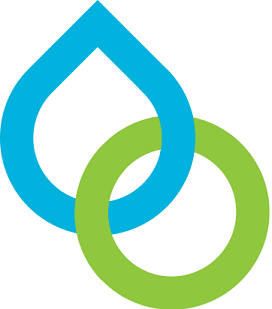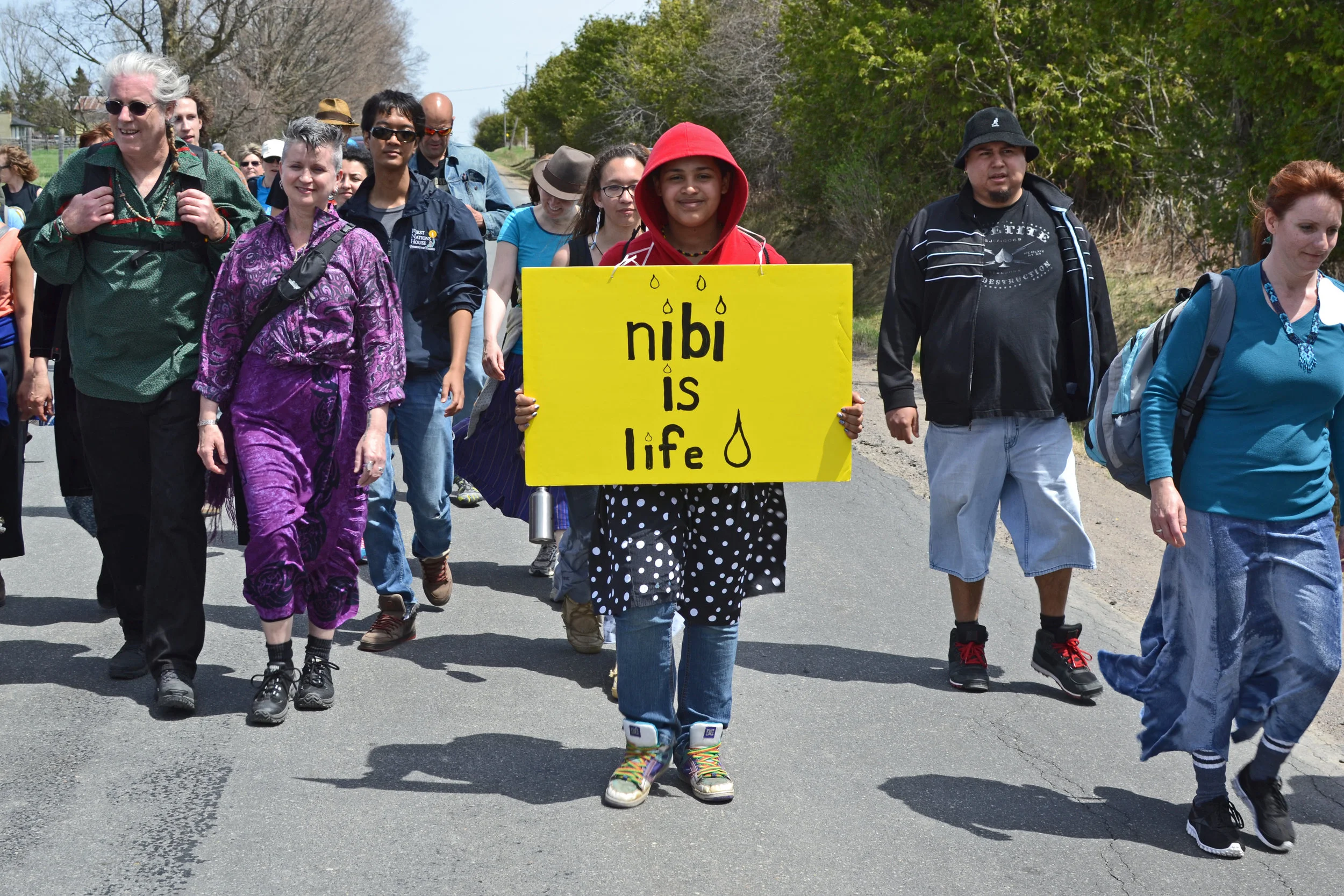All around the world, people are stepping up to protect and fight for water. Taking on waste, pollution and big industry, check out these 10 inspiring actions for water below!
Great Lakes Water Walk
Taking back the water - one step at a time! The inaugural Great Lakes Water Walk in Toronto is an open invitation to all people to join an Indigenous-led Water Walk to honor Nibi (Water).
Following Anishinaabe ceremonial protocols, Grandmothers and Elders will make water offerings, sing water songs and make petitions for our water to be clean and pure. The Walk will take place on Sunday, September 24th along the Toronto waterfront with a concluding ceremony at Marilyn Bell Park. Learn more about the Walk online here.
Shoreline Cleanups
Unlike in the ocean where waste gathers into giant garbage patches due to the currents, in Lakes and Rivers trash gets pushed up to the shoreline.
The Great Canadian Shoreline Cleanup is the largest conservation-based cleanup program in the country, organized and run completely by volunteers dedicated to protecting shoreline ecosystems from the harmful effects of litter. Since 1994, there have been 19,400 cleanups that have collected more than 1.2 million kg of trash across Canada’s shorelines. Get involved in a cleanup near you!
Another awesome shoreline cleanup initiative specific to Lake Ontario is A Greener Future, who recently received a $25,000 grant to continue keeping the garbage off our beaches. They have a number of events coming up, check them out!
Mr. Trash Wheel
In Baltimore, the Inner Harbor Water Wheel - or Mr. Trash Wheel as residents have lovingly named him - combines old and new technology to harness the power of water and sunlight to collect litter and debris flowing down the Jones Falls River.
The river’s current provides power to turn the water wheel, which lifts trash and debris from the water and deposits it into a dumpster barge. When there isn’t enough water current, a solar panel array provides additional power to keep the machine running. When the dumpster is full, it’s towed away by boat, and a new dumpster is put in place. Learn more!
Skeleton Sea
This is a beach clean-up project with an educational component. Launched by three surfers in Portugal who were disheartened by the amount of trash they ran into while surfing, they collect trash and create art while educating youth about issues affecting the Ocean.
Through its 'Seedlings Project', Skeleton Sea organizes collective beach cleanups with youth, teaches them how to assemble what they find into works of art culminating in an art exhibition that promotes and improves Ocean literacy levels in the Portuguese Educational Community. Their broader goal is to inspire a global audience through the project.
Single-Use Plastic Bans
As awareness spreads about the detrimental environmental impacts of plastic, it is becoming easier to implement single-use plastic bans. Trail blazing Costa Rica has put forward a comprehensive national strategy to eliminate all single-use plastics by 2021. This would make it the first country to enact such a widespread ban.
Kenya has just issued the world's harshest plastic bag ban, France is ridding itself of plastic plates, cups and cutlery and Ethiopia, Morocco, Coles Bay Tasmania, Karnataka India and even some spots in the US have also committed to plastic bag bans. San Fransico recently became the first US city to 'go blue' by banning plastic water bottles. Toronto has also reignited the conversation around banning plastic bags.
Awareness Raising Hashtag Campaigns
A number of organizations are working to raise awareness about the problems with single-use plastics by encouraging people to participate in hashtag campaigns online. Here's a few of our favourites:
- #StopSucking from the Lonely Whale Foundation is out to get straws.
- #BreakFreeFromPlastic is an international group of NGOs pushing to end plastic pollution for good.
- #PickUpThree encourages people to pick up at least three pieces of trash every time they visit a beach.
- #BecauseOfWater is asking people to take photos or videos explaining why they love and defend water.
- #StopMicroFibers is being used by the Story of Stuff Project to stop serious implications of plastic fibres in clothing.
Blue Communities
The Council of Canadians is asking people to become part of the local and global movement for water security and justice by joining the Blue Communities Project, which calls on communities to adopt a water commons framework by:
- Recognizing water and sanitation as human rights.
- Banning or phasing out the sale of bottled water in municipal facilities and at municipal events.
- Promoting publicly financed, owned and operated water and waste water services.
Read more about the Blue Communities Project online here.
Make a Change World
These two brothers built kayaks out of plastic bottles and bamboo and are now making their way through the world's most polluted rivers to highlight how much waste actually starts on land, then moves into the river systems. They are emphasizing that waste needs to be captured in rivers first before it makes its way into the open sea. They hope to raise awareness that 'waste' is actually a valuable material that can be transformed into useful things and should not be polluting our waterways.
You can follow their journey on Make A Change World.
"Great Lakes Personhood" House of Commons Petition
This is a petition to call upon the House of Commons in Parliament assembled to undertake a process by which to formerly acknowledge the Great Lakes as Living Entities, thereby assigning legal personhood to each Lake. New Zealand recently did this with the Whanganui River. Such declarations make it easier for local communities to protect waterways from big industry and pollution.
Underwater Drones
People around the world have begun employing OpenROV's drones to see what's going on under the surface of our oceans. They are being used as less expensive options to watch for signs of ocean acidification and warming, monitoring fish populations to prevent overfishing and collecting data to look for significant climate change related impacts along coastlines. One scientist hopes to use the data collected by drones to declare the Salish Sea a World Heritage Site.
Read more about the use of underwater drones online here.











